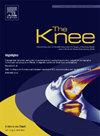GLP-1 agonists are protective against postoperative complications following total knee arthroplasty
IF 2
4区 医学
Q3 ORTHOPEDICS
引用次数: 0
Abstract
Background
Glucagon-like peptide-1 receptor agonists (GLP1RAs) have gained prominence for managing type 2 diabetes mellitus and obesity. Their impact in orthopedic surgery, particularly total knee arthroplasty (TKA), remains underexplored. Thus, this study aimed to investigate the influence of GLP1RAs on 90-day medical complications and 2-year surgical outcomes following TKA.
Methods
A retrospective cohort analysis was performed using a national all-payer claims database. Patients who underwent primary TKA were stratified into two groups: patients who received a GLP1RA within 6 months prior to surgery (GLP-1 cohort) and patients who did not have a GLP1RA history. Outcomes included the incidence of 90-day readmission and medical complications, and 2-year surgical complications. Univariate and multivariable regression analysis was conducted to compare outcomes.
Results
Patients in the GLP-1 cohort exhibited a lower 90-day readmission rate (OR: 0.77; P < 0.001) and fewer medical complications such as arrhythmia (OR: 0.78), death (OR: 0.24), and deep vein thrombosis (OR: 0.70) compared to the control (P < 0.05 for all). However, they experienced a higher odds of acute renal failure (OR: 1.16; P = 0.001). No significant differences were observed in 2-year surgical outcomes.
Conclusion
GLP1RAs use is associated with a reduced incidence of certain 90-day medical complications following TKA. We believe that this is likely due to their effects on weight loss and glycemic control. However, they are associated with an increased risk of acute renal failure. GLP1RAs do not appear to influence long-term surgical outcomes, suggesting their benefits are primarily confined to the early postoperative period.
GLP-1激动剂对全膝关节置换术后并发症具有保护作用
胰高血糖素样肽-1受体激动剂(GLP1RAs)在治疗2型糖尿病和肥胖方面得到了重视。它们对骨科手术,特别是全膝关节置换术(TKA)的影响仍未得到充分研究。因此,本研究旨在探讨GLP1RAs对TKA术后90天医疗并发症和2年手术结果的影响。方法采用全国全付款人索赔数据库进行回顾性队列分析。接受原发性TKA的患者被分为两组:术前6个月内接受GLP1RA治疗的患者(GLP-1队列)和没有GLP1RA病史的患者。结果包括90天再入院和医疗并发症的发生率,以及2年手术并发症的发生率。采用单因素和多因素回归分析比较结果。结果与对照组相比,GLP-1组患者的90天再入院率较低(OR: 0.77; P < 0.001),心律失常(OR: 0.78)、死亡(OR: 0.24)和深静脉血栓形成(OR: 0.70)等医疗并发症较少(P < 0.05)。然而,他们发生急性肾衰竭的几率更高(OR: 1.16; P = 0.001)。2年手术结果无显著差异。结论lp1ras的使用与TKA后某些90天医疗并发症的发生率降低相关。我们认为这可能是由于它们对减肥和血糖控制的影响。然而,它们与急性肾衰竭的风险增加有关。GLP1RAs似乎不会影响长期手术结果,这表明它们的益处主要局限于术后早期。
本文章由计算机程序翻译,如有差异,请以英文原文为准。
求助全文
约1分钟内获得全文
求助全文
来源期刊

Knee
医学-外科
CiteScore
3.80
自引率
5.30%
发文量
171
审稿时长
6 months
期刊介绍:
The Knee is an international journal publishing studies on the clinical treatment and fundamental biomechanical characteristics of this joint. The aim of the journal is to provide a vehicle relevant to surgeons, biomedical engineers, imaging specialists, materials scientists, rehabilitation personnel and all those with an interest in the knee.
The topics covered include, but are not limited to:
• Anatomy, physiology, morphology and biochemistry;
• Biomechanical studies;
• Advances in the development of prosthetic, orthotic and augmentation devices;
• Imaging and diagnostic techniques;
• Pathology;
• Trauma;
• Surgery;
• Rehabilitation.
 求助内容:
求助内容: 应助结果提醒方式:
应助结果提醒方式:


